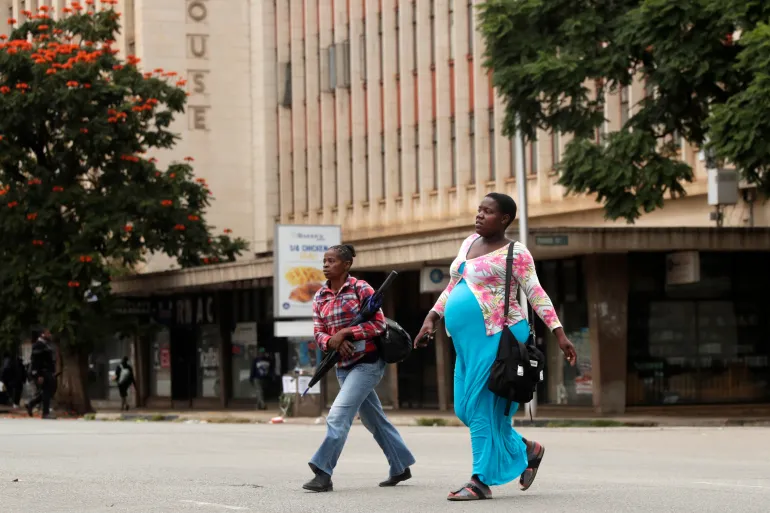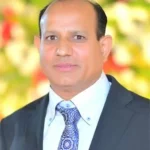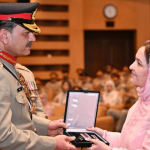Harare, Zimbabwe – On a sunny April afternoon, 41-year-old Tawanda Zvamaida sat with four friends at an outdoor bar. They were discussing recent antigovernment protests where police arrested about half of the 200 protesters.
On March 31, protesters gathered following a call for demonstrations by a former member of Zimbabwean President Emmerson Mnangagwa’s party.
Zvamaida lives in Chitungwiza, a town about 25km from the capital, Harare, and a stronghold for the opposition party, the Citizens Coalition for Change (CCC). Many residents there supported the protests but did not attend. The country was brought to a standstill that day – the streets were quiet as businesses and schools shut and Zimbabweans like Zvamaida, a shop assistant at a clothing store in central Harare, stayed home. Despite police assurances that the situation was “peaceful”, many feared violence.
The protesters called for Mnangagwa, who came to power in 2017 after the army overthrew former President Robert Mugabe, to step down, decrying what they insist is a corrupt political elite and a struggling economy. Those arrested were accused of throwing stones at the police and have since faced charges of “participating in a gathering with intent to promote public violence”.
“Personally, I would love to participate in protests, but there was no clear plan of coordination,” Zvamaida explained. Without this, he thinks “fear gripped people” who wanted to protest, and that the arrests show that the police won’t tolerate any form of dissent.

Moment of hope
An internal split has roiled the ruling ZANU-PF party, which has been in power since independence in 1980. It has pitted supporters of Mnangagwa, who want him to rule until 2030 – despite a two-term constitutional limit that would see his term end in 2028 – and those opposed to this.
Blessed “Bombshell” Geza, a veteran of Zimbabwe’s war of liberation from Britain, called for the mass demonstrations. He was expelled from ZANU-PF on March 6 after calling on the president to go and is now wanted by the police for charges including undermining the president’s authority.
He has accused the government of corruption and jailing dissenting voices without trial, and argued that Mnangagwa, who promised jobs and democracy when he came to power, is surrounded by “criminals”.
For many Zimbabweans, the recent protests offered a moment of hope as they continue their push for economic and democratic reforms.
Cassandra*, a 37-year-old fruit and vegetable seller with a roadside stall in Chitungwiza says since the emergence of a strong opposition in the late 1990s, elections have had no use in Zimbabwe.
Polls have been marred by violence, repression and torture of opposition members, and election rigging. “Our vote for a democratic change has been stolen,” she said.
Under Mnangagwa, opposition party activists have been jailed for gathering together.
Meanwhile, for nearly three decades, Zimbabwe has faced an economic crisis characterised by high food prices, loss of currency value and low wages.
Cassandra says many of her friends have left Zimbabwe for neighbouring countries and Europe due to the lack of employment opportunities.
She believes Zimbabwe needs a new leader, but does not think Mnangagwa, who is 82, would resign voluntarily, nor does she believe it would be possible to have a leader outside of the ZANU-PF.
“The government is repressive. We cannot tolerate that. But, only a few can come out openly because, on the other hand, such persecution instils fear in the majority,” explained Cassandra.

‘We are suffering’
In the Chitungwiza neighbourhood of Manyame Park, residents say that they have lived without running water for more than 20 years and must buy drinking and bathing water from mobile storage tank providers.
Wealthy residents in Harare’s leafy suburbs have cushioned themselves from the water shortages by drilling private boreholes, a costly endeavour that people in Chitungwiza and low-income suburbs in Harare cannot afford.
Across the country, most people have lost a stable income as the economic crisis is forcing businesses to close. People largely work in the informal economy as vendors, “pirate taxi” drivers (operating private cars without a business registration), waiters in back yard food courts and as security guards.
“We are suffering in this country, yet the elite are looting and enjoying. We don’t have any hope in the current government,” said Takura Makota, a 38-year-old pirate taxi driver who plies the Chitungwiza–Harare route, and a resident of Manyame Park.
“Mnangagwa is running our country like a family business, benefitting his family and friends,” said Zvamaida, referring to so-called “tenderpreneurs” – individuals close to top government officials who many believe repeatedly win government contracts and benefit from taxpayers’ money.
Last March, First Lady Auxillia Mnangagwa and her husband were sanctioned by the United States for their alleged involvement in illicit gold and diamond networks. Upon his re-election in 2023, Mnangagwa appointed his son, David, as deputy finance minister and his nephew Tongai as the deputy tourism minister. Another son, Emmerson Jr, is also sanctioned by the US due to his links with Kudakwashe Tagwirei, a business tycoon accused of using his wealth to gain state contracts. Another wealthy businessman, ex-convict Wicknell Chivayo, who has close government ties and links to Mnangagwa, is known for his flashy lifestyle – driving expensive cars, using a private jet and wearing expensive jewellery. He was awarded a Zimbabwe Power Company (ZPC) tender to construct a solar project in 2015 at a cost of $172m. Ten years down the line, the project has not seen the light of day. A court cleared him of wrongdoing in 2023, and the ZPC was ordered to pay a $25m fine.
“You see all the people surrounding the president buying helicopters and private jets, in a country where the majority are unemployed, roads are potholed and hospitals don’t have cancer [radiotherapy] machines,” Makota said.
In Chitungwiza, Makota says dilapidated infrastructure is a constant issue. Roads built in the 1990s have not been maintained, bus terminals are run down and sewers are frequently blocked, posing a health hazard.
“With proper coordination, I’m sure that soon we can protest again, because the majority are hungry and are not happy,” he added.

‘It’s quite tense’
In Epworth, a periurban settlement located in central Harare, where both ZANU-PF and CCC command support, the country’s uncertain political situation has put residents on edge.
Many residents came to Epworth as victims of “Operation Murambatsvina” (Clear the Filth) executed by the Mugabe government in 2005. Police burned, bulldozed and destroyed tens of thousands of properties, leading to the mass eviction of people from their homes and businesses around the country.
Though government officials said the operation was designed to target urbanisation and criminal activity, activists, lawyers and victims told Human Rights Watch they believed the destruction was designed to punish people who voted for the opposition in recent elections and to prevent an uprising against a worsening economic situation.
As Geza and his supporters decide on a way forward, Lorraine Mutasa, a resident and local CCC politician, says the mood in Epworth feels particularly tense.
Since the protests, Mutasa said people who usually conduct business there are avoiding the area.
Trymore*, 42, a carpenter in Epworth, believes that people are afraid to speak openly about economic hardship for fear of being denounced by pro-government supporters.
“People are divided, that’s the problem. It’s unfortunate that all of us are suffering the same and have suffered for a long time, but … some fear persecution and support the ruling party. It’s sad that the ruling party has a history of violence. So at the moment, it’s quite tense, because people don’t know what to say or to whom to mobilise one another,” he explained.
Zvamaida, the shop assistant from Chitungwiza, believes citizens can bring about change, but that they need someone to unite around and will only take to the streets if there is a guarantee of safety. “People are already angry, but it is those elements which will bring them to the streets,” he said.






